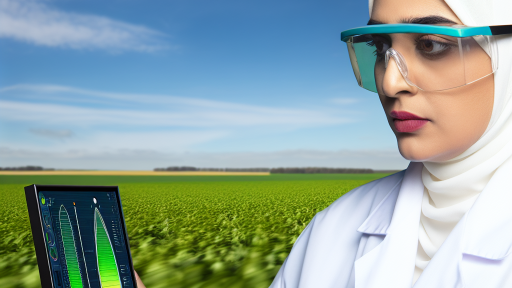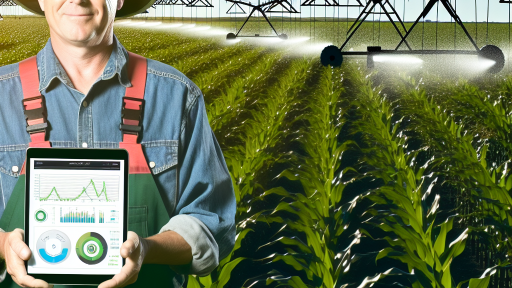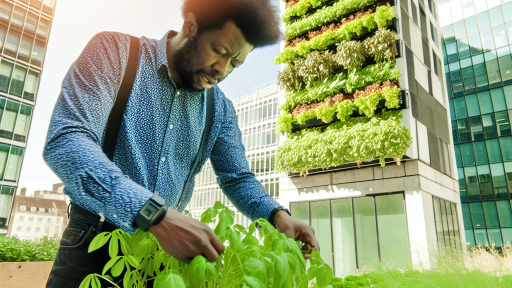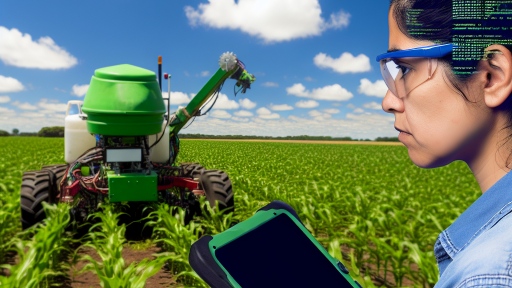Increased Efficiency and Productivity Through Automation
Streamlined Farming Processes
Automated machinery revolutionizes farming processes today.
These machines perform tasks that once required significant manual labor.
For instance, tractors now navigate fields with minimal human intervention.
Additionally, automated arms can plant, water, and harvest crops.
This leads to a faster overall production cycle compared to traditional methods.
Enhanced Resource Management
Automation dramatically improves the management of resources.
Using precision guidance systems, farmers optimize land usage efficiently.
These systems assist in applying water and fertilizers where needed.
Consequently, this reduces waste and promotes sustainable practices.
Farmers now utilize drones for monitoring crop health and conditions.
Labor Cost Reduction
Automated machinery significantly cuts labor costs for farmers.
With less reliance on human labor, farmers can allocate funds elsewhere.
This allows them to reinvest in their operations and technology.
Moreover, automation leads to increased profitability in the long run.
Farmers can produce more with fewer financial burdens.
Transform Your Agribusiness
Unlock your farm's potential with expert advice tailored to your needs. Get actionable steps that drive real results.
Get StartedData-Driven Decision Making
Automation provides valuable data for informed decision-making.
Farm equipment equipped with sensors collects data in real-time.
This information helps farmers make precise adjustments as needed.
With accurate data, farmers can predict yields and adjust strategies accordingly.
In turn, this leads to better planning and resource allocation.
Increased Crop Yields
Automation directly correlates with increased crop yields.
Efficient planting and harvesting improve the overall output.
Additionally, precision agriculture techniques allow for optimized growth conditions.
As a result, farmers witness healthier plants and higher production rates.
Overall, superior yields contribute to greater food security.
Cost Reduction in Labor and Operational Expenses
Minimizing Labor Costs
Automated machinery significantly reduces the need for manual labor.
This technology allows farmers to accomplish tasks more efficiently.
Robotics perform repetitive jobs, allowing human workers to focus on higher-level tasks.
As a result, farms can operate with fewer employees, leading to cost savings.
Moreover, automation can work around the clock, improving productivity.
Lower Operational Costs
Automated machinery often leads to lower operational expenses overall.
This equipment is typically more fuel-efficient than traditional machinery.
Additionally, automation reduces waste, as machines perform tasks with precision.
This precision helps in using resources like water and fertilizer more effectively.
Subsequently, farms see a decrease in variable costs associated with production.
Investing in Long-Term Savings
Initial investments in automated machinery pay off in the long run.
Farmers experience reduced costs over time due to increased efficiency.
Many machines have lower maintenance requirements, saving money and time.
Furthermore, streamlined processes contribute to higher crop yields.
Showcase Your Farming Business
Publish your professional farming services profile on our blog for a one-time fee of $200 and reach a dedicated audience of farmers and agribusiness owners.
Publish Your ProfileThis increased productivity enhances overall profitability for farmers.
Improved Precision in Farming Techniques
Enhanced Data Collection
Automated machinery collects data efficiently during farm operations.
Sensors integrated into equipment monitor soil conditions in real time.
This technology enables farmers to make informed decisions quickly.
For instance, moisture sensors help manage irrigation precisely.
This reduces water waste and optimizes crop yields significantly.
Targeted Applications
Precision agriculture allows for targeted application of inputs.
Farmers can apply fertilizers only where needed on the field.
This reduces costs and minimizes environmental impact effectively.
Technology assists in mapping variability across fields accurately.
As a result, farmers achieve higher efficiency in resource use.
Real-Time Monitoring and Adjustments
Automated systems enable real-time monitoring of crop health.
Drones equipped with cameras can assess large fields quickly.
This capability allows for timely interventions when issues arise.
Farmers can respond to pest infestations or disease outbreaks promptly.
Consequently, they protect their investments and enhance productivity.
Improved Harvest Techniques
Automated harvesters ensure crops are harvested at the right time.
They monitor crop ripeness with precision and reduce losses.
This technology can work around the clock, optimizing harvest time.
Moreover, automated equipment minimizes damage to surrounding plants.
This keeps overall yield and quality high for the produce.
Data-Driven Decision Making
Farmers utilize data analytics for improved decision-making.
Automation provides insights into weather patterns and soil health.
Data helps optimize planting schedules, enhancing crop success rates.
Additionally, farmers can predict market trends more accurately.
This understanding fosters better financial planning and risk management.
You Might Also Like: Automated Machinery for Soil Health Monitoring
Enhanced Crop Monitoring and Management Capabilities
Precision Agriculture Technologies
Modern farming employs precision agriculture technologies effectively.
These technologies include satellite imagery and drones.
Farmers can monitor crop health in real time.
Consequently, they can make informed decisions quickly.
Soil Health and Fertility Management
Automated systems assess soil health reliably.
Farmers can utilize soil sensors to track moisture levels.
These insights allow for better nutrient management.
As a result, crop yields increase significantly.
Data-Driven Decision Making
Data analytics plays a vital role in crop management.
Farmers use software to analyze field performance metrics.
They can forecast crop production accurately.
This approach enhances operational efficiency and profitability.
Integrated Pest Management
Automated machinery helps with pest monitoring.
Showcase Your Farming Business
Publish your professional farming services profile on our blog for a one-time fee of $200 and reach a dedicated audience of farmers and agribusiness owners.
Publish Your ProfileFarmers deploy smart traps that send alerts automatically.
This allows for timely pest control interventions.
Ultimately, it reduces pesticide usage effectively.
Resource Optimization
Automated irrigation systems optimize water usage efficiently.
Farmers can schedule watering based on weather forecasts.
Additionally, they minimize waste and conserve resources.
Such practices promote sustainable farming methodologies.
Learn More: Drones and Remote Sensing in Modern Farming
Reduction in Human Error and Improved Consistency
Minimizing Human Error
Automated machinery significantly reduces human error on farms.
Farmers can rely on technology for precise operations.
These machines consistently follow programmed instructions.
For instance, automated planting machines ensure uniform spacing.
This leads to better crop growth and higher yields.
Moreover, automated systems limit mistakes during harvest.
Consequently, farmers reduce losses associated with inaccurate harvesting.
Enhancing Consistency across Operations
Automated machinery maintains consistent performance throughout farming processes.
This consistency promotes even application of fertilizers and pesticides.
As a result, crop health improves significantly.
Additionally, regular machinery operations lead to standardized output.
This standardization also enhances product quality.
For example, consistent irrigation practices optimize water usage.
Farmers notice reduced variability in their harvests year after year.
Data-Driven Decision Making
Automated machinery often incorporates data analytics capabilities.
Farmers can use real-time data to make informed decisions.
This data-driven approach improves operational efficiency.
For instance, monitoring soil health enables better resource allocation.
Also, farmers can track equipment performance to anticipate maintenance needs.
Ultimately, this leads to fewer unexpected breakdowns and repairs.
Therefore, both productivity and profitability increase for farmers.
Discover More: The Benefits Of Agricultural Robotics
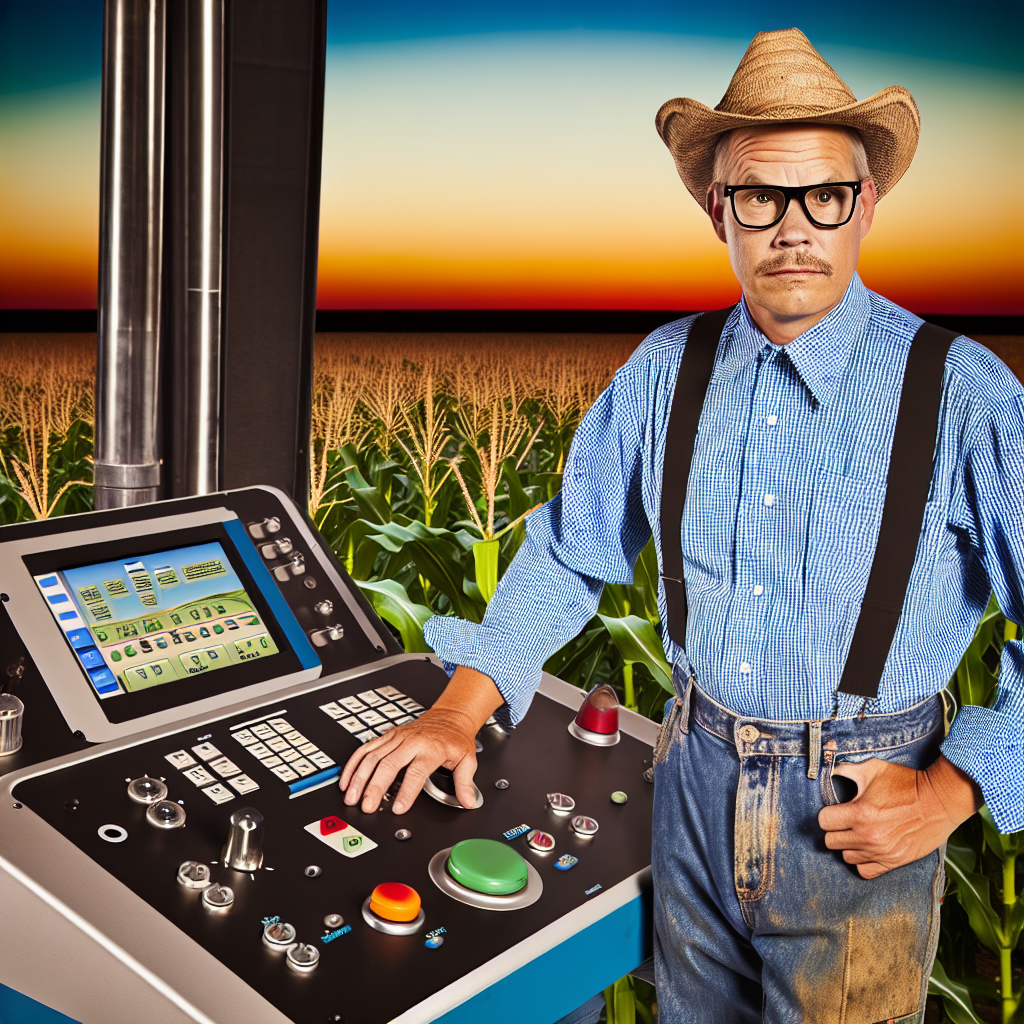
Sustainability and Reduced Environmental Impact
Advancements in Technology
Automated machinery revolutionizes modern farming practices.
This technology significantly decreases resource consumption.
Farmers now use precision agriculture techniques for efficiency.
Advanced sensors monitor crop health and soil conditions effectively.
Farmers can respond quickly to environmental changes.
Minimized Use of Chemicals
Automation allows for targeted application of fertilizers and pesticides.
This method reduces the total amount of chemicals released into the environment.
Consequently, soil and water quality improve over time.
Farmers witness increased biodiversity in their ecosystems.
Reduced Carbon Footprint
Automated machinery enhances fuel efficiency in farming operations.
Showcase Your Farming Business
Publish your professional farming services profile on our blog for a one-time fee of $200 and reach a dedicated audience of farmers and agribusiness owners.
Publish Your ProfileRobotic systems optimize fieldwork, saving fuel and energy.
In result, greenhouse gas emissions lower significantly.
These reductions contribute positively to global climate goals.
Conservation of Natural Resources
Automation promotes efficient water usage in irrigation systems.
Farmers use less water, preserving this critical resource.
Moreover, automated systems help prevent soil erosion.
Healthy soil contributes to sustainable farming practices.
Long-Term Economic Benefits
Fewer resources spent on farming lead to cost savings.
As a result, farmers can invest in sustainable practices.
These practices enhance land productivity and profitability.
Ultimately, it fosters a sustainable future for agriculture.
Explore Further: Precision Farming: Leveraging Remote Sensing Data
Data Collection and Analytics for Informed Decision-Making
Importance of Data Collection
Data collection plays a critical role in modern farming.
Farmers can gather information about soil health, crop yields, and weather conditions.
This data informs their decisions on planting, irrigation, and fertilization.
Additionally, it allows for timely interventions to improve productivity.
Utilizing Advanced Technologies
Modern farming employs various technologies to enhance data collection.
For instance, drones capture aerial imagery of fields.
This imagery helps farmers assess crop health and detect pest infestations.
Furthermore, sensors in the soil monitor moisture levels continuously.
As a result, farmers can make data-driven decisions on irrigation schedules.
Data Analytics for Better Insights
Data analytics provides deeper insights into farming operations.
With the right tools, farmers can analyze trends over time.
This analysis reveals patterns in yield and helps predict future harvests.
Moreover, farmers can evaluate the effectiveness of their agricultural practices.
Consequently, this leads to refined strategies for enhancing productivity.
Benefits of Informed Decision-Making
Informed decision-making boosts overall farm efficiency.
Farmers reduce waste through precise resource allocation.
This practice maximizes crop yields while lowering production costs.
Additionally, farmers can improve sustainability by reducing chemical use.
Overall, data-driven decisions create a more resilient agricultural sector.
Case Studies
Several farms have benefitted from automated data collection and analytics.
For instance, Willow Creek Farm implemented soil sensors.
This technology increased their crop yields by 20% in one season.
Another example is Maple Leaf Farms, which used analytics to optimize irrigation.
The result was a cost reduction of 30% in water usage.
Future Trends in Automated Machinery and Their Impact on Agriculture
Advancements in Robotics
Robotics technology rapidly evolves in modern agriculture.
Farmers increasingly incorporate robotic solutions into daily operations.
These advancements enhance efficiency and reduce labor costs.
Automated harvesters, for example, streamline the harvesting process.
Showcase Your Farming Business
Publish your professional farming services profile on our blog for a one-time fee of $200 and reach a dedicated audience of farmers and agribusiness owners.
Publish Your ProfileSuch machinery performs tasks with precision and speed.
Integration of Artificial Intelligence
Artificial intelligence plays a crucial role in automated farming.
Farmers utilize AI for data analysis and decision-making processes.
This technology helps optimize resource management significantly.
As a result, crop yields improve while minimizing waste.
Additionally, AI predicts pest outbreaks, allowing for proactive measures.
Increased Use of Drones
Drones are becoming essential tools in contemporary agriculture.
They assist in aerial surveillance and crop monitoring.
Drones gather vital data on crop health from above.
Farmers can make informed decisions using this data.
Moreover, drones facilitate precise irrigation and pesticide application.
Sustainable Practices through Automation
Automation fosters sustainable farming practices in many ways.
It reduces the need for chemical inputs, promoting eco-friendly methods.
Automation also supports soil conservation through targeted tillage.
Farmers implement automated cover cropping and crop rotation systems.
These practices enhance biodiversity and soil health over time.
Future Challenges and Considerations
Despite the positive trends, challenges remain in automated farming.
Initial investment costs for advanced machinery can be high.
Furthermore, training is necessary for effectively operating this technology.
Farmers must adapt to rapidly changing technologies to stay competitive.
Lastly, data privacy concerns arise as farming becomes more digital.

